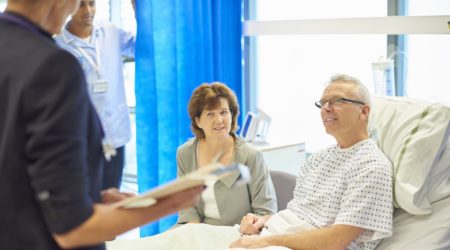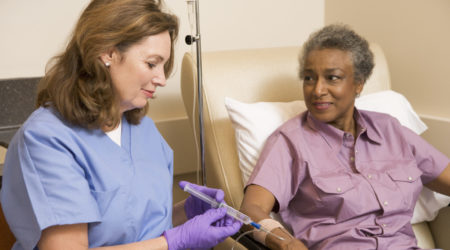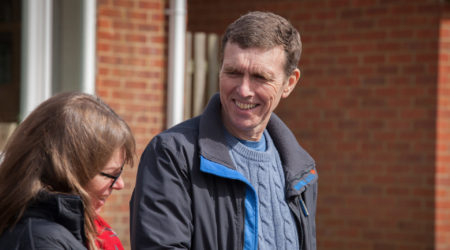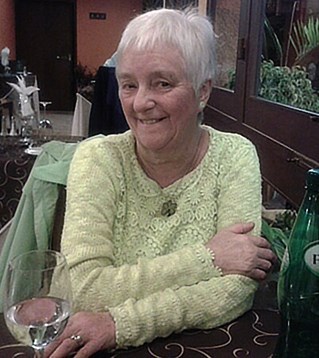

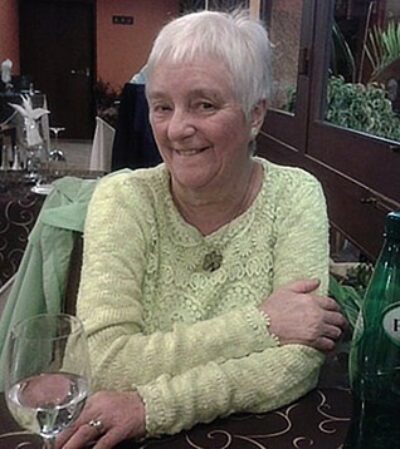

Gill M
Gill, diagnosed with ampullary carcinoma in 2008, shares her experience.
I was diagnosed on December 12 2008. My GP had observed my symptoms over about 4 weeks, during which there was significant weight-loss, loss of appetite, fatigue and ultimately jaundice. I was sent for an ultrasound scan followed by a CT scan, which found I had ampullary carcinoma.
I had a Whipple’s operation to remove the cancer and part of the pancreas in December. This was followed by chemotherapy (gemcitabine) weekly for six months to ensure total elimination of any remaining cancer cells.
The promptness with which the surgeon acted, rather than wait till after Christmas 2008, may well have been key in saving my life. Rather than have miserable memories of that Christmas spent in hospital, the memories are of a special time, with Carol singers and eating normal food, and visits from friends and family for the first time in weeks!
I recovered well from the surgery in view of its severity. I was immensely relieved by the surgeon’s confidence that he had removed all the cancerous part of the pancreas, but without needing to impair the production of insulin. He had successfully used the duodenum to construct the necessary ducting.
The chemotherapy made me very tired initially, and then severe anaemia necessitated several blood transfusions, after 5 months of treatment. Despite these I became increasingly forgetful and confused and when mobility and ultimately speech became difficult, I was admitted to hospital and all medication ceased, including the Priadel (antidepressant) which I had been prescribed many years before. I rapidly improved and was discharged after 2 weeks. The chemotherapy was discontinued three treatments short. The consultant felt it had done its work. The Priadel was slowly reintroduced successfully.
I am immensely relieved that I have been successful treated and that I was fully discharged, symptom free, on December 5 2013. The consultant’s words will always be with me: ‘Congratulations! We don’t get many of you!’
My family and friends were delighted. As were the members of my church who prayed for us all the way through, making what could have been a grim ordeal a time of shared love and peace.
I have been delighted to agree to the consultant’s suggestion that having volunteered and been trained to work as a Volunteer Chaplain, I work on his ward. As he said, ‘He can do the surgery, the nurses the day to day medical care, but I have been there and can come alongside the patients.’
November 2017


